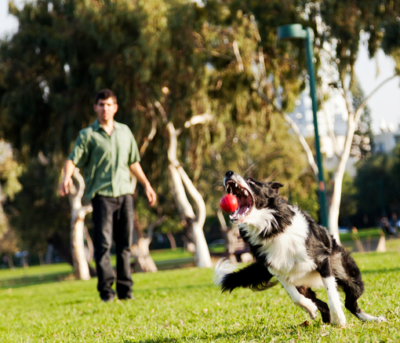 By Pepper Parr
By Pepper Parr
April 24th, 2023
BURLINGTON, ON
Sometime in 2025 Brock University will have students on the second level of what used to be the Bateman High School. They are becoming part of the city fabric.
Brock is however going a little further. As one of the newer universities it has to work a little harder to get recognized. Brock opened in September 1964. It had 127 students who attended class in a refurbished refrigeration factory at the foot of the Niagara Escarpment in St. Catharines.
The Brock media people have been sending briefing on some of the research work done by the different faculties.
This came our way by Renata Roma who says “Puppy love can be powerful.”

Renata Roma, PhD candidate at Brock University
Roma is reminding pet owners that human relationships with dogs have just as many ups and downs as relationships between people.
With National Adopt a Shelter Pet Day coming up this weekend, the PhD candidate in Brock’s Department of Child and Youth Studies (CHYS) wants people to understand that dogs have different personalities that can change over time.
“Dogs are as complex as people, so if you want to have a dog, be prepared to have lots of enjoyable moments but also moments of distress,” says Roma. “Those moments don’t mean the relationship is not going well — it’s just part of your relationship with your dog.”
The former therapist says she grew interested in studying the interactions of dogs and people after introducing a therapy dog into her sessions working with children with autism.
She began researching the subject in earnest while completing her master’s degree and is now fast approaching her PhD dissertation defence under the supervision of Associate Professor Christine Tardif-Williams in CHYS.
“I wanted to see how dogs can positively influence people’s well-being, and if attachment or synchrony in terms of having similar or complementary personalities would help people have more well-being in a relationship with a dog,” says Roma. “But I didn’t want to look only at the positive side.”
She says that in the online discourse, where boundless love for dogs is celebrated, some challenges of human interactions with dogs are often overlooked, which may leave some people feeling unprepared for managing difficult situations.

Some dogs have a remarkable ability to chase an object and catch it in mid air
“I have my own dogs, so I know that we love them, but they can be annoying; it’s the same thing that happens with people we love,” she says. “So, I wanted to work with both aspects of the relationship, synchrony and lack of synchrony between the person and the dog.”
In a recent paper, “My ‘Perfect’ Dog: Undesired Dog Behaviours and Owners’ Coping Styles,” which Roma co-authored with Tardif-Williams, Professor Shannon Moore in CHYS and Professor Patricia Pendry of Washington State University, the research team looked at how dog owners between the ages of 17 and 25 cope with difficult situations, such as frequent barking or aggression. Their work included not only the strategies young dog owners use, but also how the difficult situations affect the relationship between the dog and the owner.
What they found was that even inexperienced dog owners coped well with challenging behaviours among their dogs, favouring positive reinforcement over punishment.

Team work – they are sometimes better at it than people.
“The young people found that it’s possible to have a dog that is not perfect, that doesn’t behave well, and still have a great connection,” she says. “The participants, many of whom were Brock students, talked about their dogs as the ‘perfect fit’ and acknowledged that it is a relationship where love comes first, but there are stressful situations that need to be handled, too.”

Play like this will keep a child and a dog at it for hours. Better than TV or cell phone time.
Tardif-Williams says that Roma’s findings make “an important contribution to the emerging field of human-animal interactions.”
“Renata’s research speaks directly to the ‘pet effect,’ which is to say that pets are not always a ‘cure-all’ for human health and well-being,” she says. “Pets have their own unique characteristics, and you want to have a good fit between young people and their pets.”

















